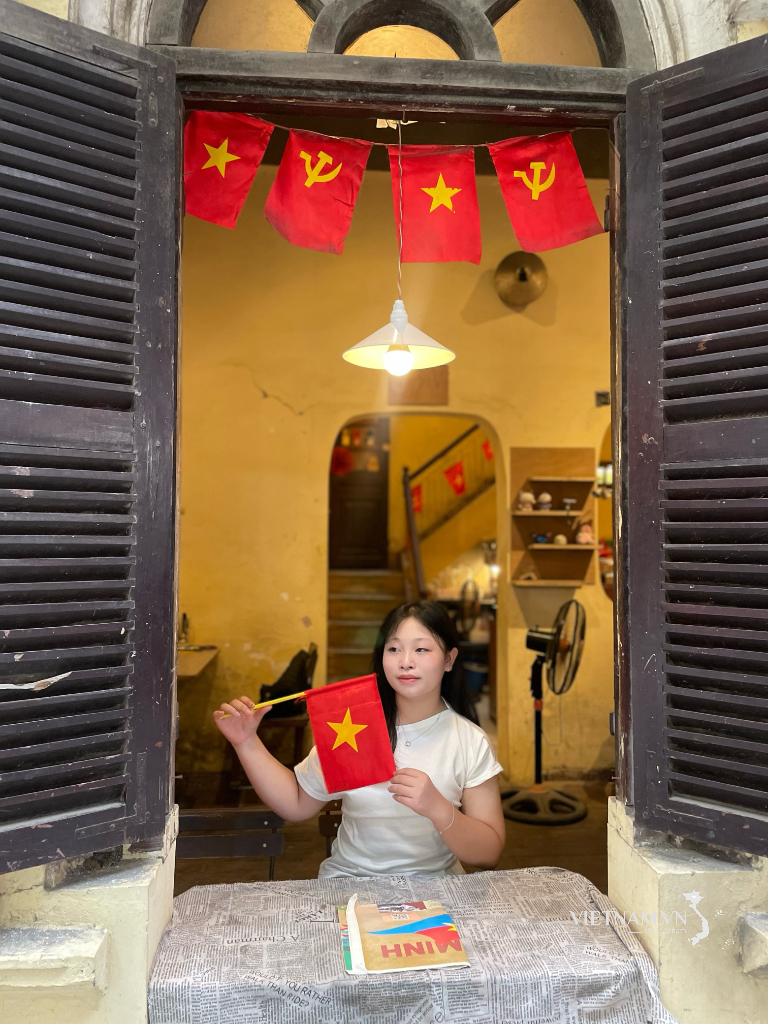 |
"These days, it's rare to find a husband like that. Our son-in-law is truly blessed," she said, her voice high with contented laughter, looking up at her husband as if to share her joy. Then, she gathered all the husbands who were drunk all day, gambled all night, or were lazy and gluttonous, creating a gloomy backdrop to elevate her precious son-in-law. Her cheerful demeanor made him beam with joy.
He extended his joy by talking about his son, not about his resourcefulness at work or his sociable nature, but about his skill and finesse in the kitchen. He said that Hai used to not even know how to fry an egg or boil vegetables, but now he's second to none in the house when it comes to cooking. Even simple dishes like vegetable soup, braised fish, or stir-fried meat, he seasons them perfectly, awakening the taste buds of diners even before they take a bite. He said that the officer training school truly hones students not only on the training ground but also in the kitchen; thanks to that, Hai has achieved such a remarkable difference. Ironically, his wife – a military cook – seems to be no match for him in the kitchen. Whenever there's a party or gathering, Hai joins his wife in the kitchen and even takes the lead in designing the feast.
He shared his satisfaction and smug smile, as if hoping for her to share it. But no, he was met with indifference and a dismissive glance. His enthusiasm waned: "What's wrong with you?" His voice trailed off with disdain: "What's so great about a man always being in the kitchen!?" Whenever she visited her grandson, seeing her son busily cooking, she felt strange, as if she'd been hurt. Moreover, he even took over his wife's duties: "You've worked hard all day in the unit's kitchen, let me help." Then, he put on an apron and rolled up his sleeves, ignoring his wife's worried expression at his mother's displeasure.
He indignantly questioned, "You're so strange, doing the same things, but you praise and encourage your son-in-law while criticizing your son. It's precious when young couples share household chores, isn't it?" She was speechless, bewildered. Even she couldn't quite explain the change in her own heart since her children got married. Apparently, she applauded anything the young couple did for each other that was considered "good" for her son or daughter; but if her son spoiled his partner excessively, she worried unnecessarily, as if she feared he was being neglected.
Even when it came to their spending, she subtly sided with her sons, despite being the one in charge of the household finances. She once whispered to her son, "You have to save a little money yourself. It's so humiliating to have to constantly ask your wife for it when you need it." Her son smiled and brushed it off, saying, "We know, Mom, you don't have to worry." Still worried, she recounted stories of men whose wives controlled all their money, forcing them to beg for it whenever they needed it – their own money felt like a favor. She shook her head bitterly, "It's so sad!" Her son took her hand and reassured her, "We're not like that, Mom."
Her worries about money extended to when she heard that her son's parents-in-law were about to build a house. She told her husband, then casually mentioned, "They're struggling financially; they'll probably have to rely on their children's money again." Her husband smiled and encouraged his in-laws, saying, "They're getting old; it's wonderful that their children are helping them build a house." She remained silent, not responding to her husband's enthusiasm, probably worried that her son would spend money on his wife's family again. Conversely, when her daughter bought her a water-cooled fan, and her son-in-law bought her a bamboo mat or a hammock, she boasted about it to everyone in the neighborhood, often reflecting on the joy of being cared for by her children.
Apparently sensing the narrow-mindedness in her mother-in-law's heart, the daughter-in-law, returning from the city to the countryside, would usually visit her husband's family first before going to her parents' house, staying longer. If she went the other way, she wouldn't mention her parents' house when she arrived, fearing her mother-in-law would be critical. There was even an instance where her mother-in-law found out that her daughter-in-law had spent the whole day with her parents before briefly visiting her husband's house, even though the two houses weren't far apart. She frowned and complained to her husband, "She just came over briefly out of politeness." He stared at her, then softly retorted, "When our daughter comes home, you want her to stay longer, don't you? Everyone does the same. Try to be more understanding, it'll ease your mind, wife."
As Tet approaches, the daughter-in-law is once again faced with a dilemma: should she celebrate Tet with her husband's family or her own? Married for five years, the young couple has yet to experience a truly complete family reunion for Tet. One year, she was on leave, while her husband was on duty; the following year, when he was free, she was busy preparing meals for the soldiers who remained behind, ready for battle. While her comrades rested and enjoyed themselves, she was often busy with the task of organizing feasts or providing extra meals, and during Tet, she also had to make banh chung and banh tet (traditional Vietnamese rice cakes).
This year, her husband celebrated Tet at his unit, while she and their young child returned to their hometown. She planned to stay at her in-laws' house until just before Tet before going to her parents' house, so she busied herself cleaning the house, washing dishes, and helping her mother make traditional Vietnamese rice cakes. She soaked the bronze incense burner in water infused with Garcinia cambogia leaves and spent the entire afternoon scrubbing it, then washed mosquito nets and blankets to dry around the fence. Looking up at the cobweb-covered ceiling, she went to find a long-handled broom. Her father told her to rest several times, but she didn't stop working and hadn't dared mention her intention to celebrate Tet at her parents' house. He seemed to sense her hesitation, so the next day he said, "You should arrange to go to your parents' house. I've also been invited to the birthday celebration for your parents right after Tet. You should come home early to take care of things there."
She softly replied, "Yes," a mixture of joy and surprise, lowering her head to hide her emotion at being understood. After a while, she looked up at her father and confided, "This Tet, Aunt Ba and Uncle Ut won't be coming home either, I'm worried our house will be empty..." Her father smiled and brushed it aside, "It's alright, my dear!"
Despite saying that, when the children turned around and waved goodbye, the old man felt a pang of sadness. He walked slowly out to the gate, watching until the children disappeared behind the rows of acacia trees on the village road. He returned and was met with his wife's unhappy expression. She grumbled, "It's only right that the children celebrate Tet at the paternal grandparents' house; and you..." As if anticipating this, he smiled and lowered his voice, "I know it's more fun to be with the children during Tet, but they're preparing for a longevity celebration, and the children's maternal grandparents are getting old..." Seeing her troubled expression, he whispered softly, almost in her ear, "You should think about others a little, dear."
On the thirtieth day of the lunar month, the offerings for the ancestors were laid out on the altar, with incense smoke rising profusely. After praying to his ancestors, he stepped out onto the porch, absentmindedly gazing at the apricot tree at the edge of the yard, laden with buds under the drizzling rain like mist, while his wife remained busy in the kitchen. Hearing the dog growl, he looked towards the gate; after a whistle, his grandson jumped out of his bicycle and rushed into the yard. He stood still, his wife hurried up from downstairs, and both silently watched their grandson.
The daughter-in-law parked her motorbike and greeted her parents-in-law with a smile. Seeing their surprised expressions, she said, "I was afraid you'd be sad during the Lunar New Year..." Carrying her bags of groceries inside, she looked at the brightly lit altar and sighed apologetically, "My mother kept urging me to come home to help her prepare the offerings, but there was so much traffic, I didn't dare drive fast."
He suppressed his joy, hesitantly saying, "And what about the matter on my mother's side...?" A cheerful reply came back: "My younger brother was lucky enough to get a plane ticket; he just arrived this morning. He'll be taking care of the birthday celebration, Dad." He smiled, stepped forward, and hugged and kissed his grandson, while his wife turned away, looking embarrassed.
Source




































































































Comment (0)